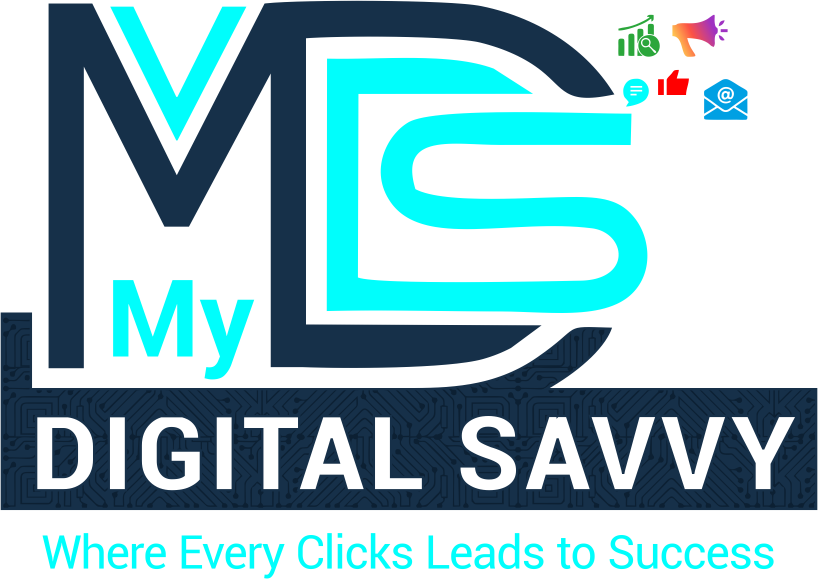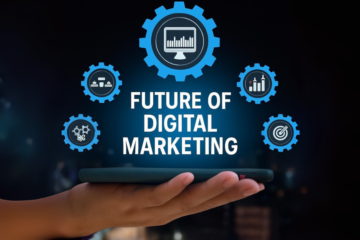
In the modern business world, digital marketing has become the foundation of success. Whether you are a small business owner, a startup, or a global brand, the internet is the first place your potential customers will look for you. This is why understanding the importance of digital marketing is crucial for business growth.
Through this blog, we will explore why digital marketing is important, its benefits, strategies, and the role it plays in business development.
Why Digital Marketing is Important
The first question many business owners ask is: why digital marketing is important? The answer lies in consumer behavior. People spend hours every day on their smartphones, laptops, and social media platforms. Before making a purchase, they research online, check reviews, and compare options.
Digital marketing helps businesses:
Be visible where customers spend time
Build trust through content, reviews, and engagement
Compete with larger competitors using targeted campaigns
Generate leads at a lower cost compared to traditional marketing
In short, if your business is not online, you are invisible to a huge segment of potential customers.
Role of Digital Marketing in Business Growth
The role of digital marketing in business growth is unmatched. Unlike traditional marketing, digital channels provide:
Global Reach – Businesses can target audiences beyond geographical boundaries.
Precise Targeting – Ads can be shown to specific groups based on demographics, interests, and behaviors.
Higher Conversions – With optimized landing pages and calls-to-action, businesses turn visitors into customers more effectively.
Brand Building – Continuous online presence builds trust and recognition.
Analytics & Insights – Tools like Google Analytics allow businesses to measure every campaign.
This data-driven approach enables faster scaling and smarter decision-making.
Benefits of Digital Marketing
The benefits of digital marketing go beyond just visibility. Some of the top advantages include:
Cost-Effectiveness: Small businesses can run ads on social media or Google for a fraction of the cost of TV or print ads.
Measurable Performance: Every click, view, or sale can be tracked in real-time.
Customer Engagement: Social media enables businesses to directly interact with their customers.
Brand Loyalty: Personalized campaigns and email marketing help retain customers.
Faster Results: Unlike traditional campaigns, digital ads deliver instant visibility.
Advantages of Digital Marketing Over Traditional Marketing
When comparing traditional vs digital methods, the advantages of digital marketing are clear:
Real-Time Interaction: Customers can chat with businesses via WhatsApp, Messenger, or website chatbots.
Scalability: Campaigns can start small and expand as needed.
Detailed Targeting: Traditional billboards reach everyone, but digital ads reach only those interested.
Better ROI: Businesses get more value for their marketing spend.
Multiple Formats: From blogs and videos to reels and podcasts, businesses can market in creative ways.
Importance of Digital Marketing for Small Businesses
For small businesses, budgets are often tight, making digital marketing a game-changer. The importance of digital marketing for small businesses lies in:
Affordable Promotion: Platforms like Facebook Ads let small businesses advertise for as little as a few hundred rupees.
Local SEO: Helps businesses show up when customers search “near me” services.
Customer Trust: Reviews, testimonials, and social proof attract new buyers.
Competing with Big Brands: Digital tools give small businesses equal visibility opportunities.
For example, a small bakery can use Instagram reels, Google My Business, and WhatsApp marketing to grow without spending big.
Scope of Digital Marketing
The scope of digital marketing is continuously expanding. With new technologies and consumer habits, businesses have endless opportunities. The major areas include:
Search Engine Optimization (SEO): Ranking higher on Google search results.
Pay-Per-Click (PPC) Advertising: Paid ads for instant visibility.
Social Media Marketing (SMM): Engaging customers on Instagram, Facebook, LinkedIn, and Twitter.
Content Marketing: Blogs, videos, and infographics to attract and educate customers.
Email Marketing: Personalized communication to improve customer retention.
Influencer Marketing: Partnering with influencers to reach niche audiences.
Affiliate Marketing: Earning through partnerships and referrals.
Emerging trends like Artificial Intelligence, Chatbots, Voice Search, and AR/VR show that digital marketing will only grow stronger in the future.
Essential Digital Marketing Strategies
To succeed, businesses must adopt effective digital marketing strategies:
SEO (Search Engine Optimization): Improve your website ranking for keywords like importance of digital marketing.
Content Marketing: Create blogs, videos, and case studies to provide value and attract customers.
Social Media Marketing: Build strong communities on Instagram, Facebook, and LinkedIn.
PPC Campaigns: Run targeted ads on Google or social platforms.
Email Campaigns: Send newsletters, offers, and product updates to your audience.
Influencer Collaborations: Work with trusted creators in your niche.
Analytics & Optimization: Use tools to measure results and refine strategies.
Conclusion
The importance of digital marketing in today’s business world is undeniable. It helps businesses connect with customers, boost sales, and grow faster than ever before. From the role of digital marketing in business growth to the benefits of digital marketing, it is clear that online strategies provide unmatched opportunities.
Whether you are a large enterprise or a local shop, adopting the right digital marketing strategies will ensure long-term success. The scope of digital marketing continues to expand, and those who invest in it today will stay ahead tomorrow.
In simple terms, why digital marketing is important can be answered in one line: It is the key to visibility, trust, and growth in the digital age.




